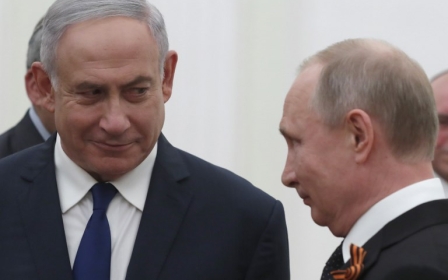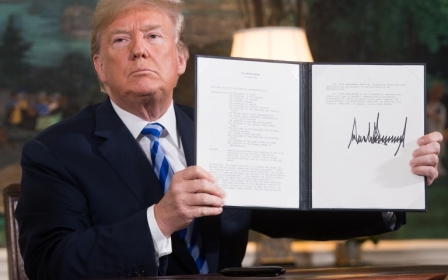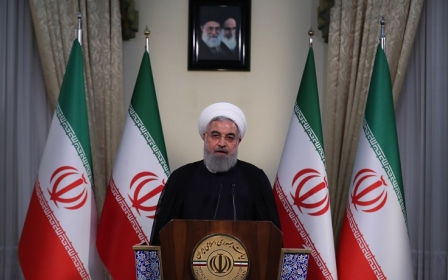Iran's Khamenei outlines demands for Europe to save nuclear deal
Iran's top leader set out a series of conditions on Wednesday for European powers if they want Tehran to stay in a nuclear deal after the US exit, including steps to safeguard trade with Tehran and guarantee its oil sales.
Earlier this month, US President Donald Trump pulled out of the 2015 nuclear deal that lifted sanctions on Iran in exchange for curbs to its nuclear programme.
European powers see the international accord as the best chance of stopping Tehran from developing a nuclear weapon and have intensified efforts to salvage it.
"European banks should safeguard trade with the Islamic Republic. We do not want to start a fight with these three countries (France, Germany and Britain) but we don't trust them either,” Iranian Supreme Leader Ayatollah Ali Khamenei said, issuing conditions for saving the nuclear pact on his website.
He also stipulated that European powers must protect Iranian oil sales from US plans to scuttle them by reimposing global sanctions on Tehran, and continue buying Iranian crude.
He further said that Britain, France and Germany must pledge that they would not seek negotiations on Iran's ballistic missile programme and on its regional activities, both of which were not covered by the nuclear pact but are now being demanded by Washington.
Khamenei said that over the past two years, the United States "has repeatedly violated" the nuclear deal but the Europeans had remained silent. He asked Europe to "make up for that silence" and to "stand up against US sanctions”.
He warned that if the Europeans did not meet these demands, Iran would resume its enrichment of uranium, shelved under the deal to minimise the risk of Tehran developing nuclear weapons.
Khamenei also launched a fresh broadside at Washington's rejection of the nuclear accord, saying the US withdrawal showed the Islamic Republic could not deal with a country that did not abide by its commitments.
In his first public remarks since US Secretary of State Mike Pompeo demanded Iran make sweeping policy changes, Khamenei expressed revulsion at what he suggested was the casual and boastful way the Trump administration had abandoned the accord.
"The Islamic Republic cannot deal with a government that easily violates an international treaty, withdraws its signature and in a theatrical show brags about its withdrawal on television," he said in excerpts of his remarks posted on his website.
In a clear reference to demands made by Pompeo that Tehran's Middle East influence should be curbed, Khamenei said, “Iran's presence in the region...is our strategic depth and no sensible government would give up on its strengthening features".
Pompeo on Monday threatened Iran with "the strongest sanctions in history" if it did not scale back regional activities such as support for armed groups in Lebanon, Iraq and Yemen as well as the government side in Syria's civil war.
France, one of several European powers dismayed by the US withdrawal from the nuclear deal, said Washington's method of piling more sanctions on Tehran would reinforce the country's dominant hardliners who opposed the pact in the first place.
And German Foreign Minister Heiko Maas told Trump's national security adviser, John Bolton, that Europe remained "very, very united" in supporting the deal because it feared a proliferation of atomic weapons on its doorstep.
A senior Iranian military official, Major General Mohammad Bagheri, said Iran would not bow to US pressure to limit its military activities. Washington "does not have the courage for military confrontation and face-to-face war with Iran," he said.
Middle East Eye propose une couverture et une analyse indépendantes et incomparables du Moyen-Orient, de l’Afrique du Nord et d’autres régions du monde. Pour en savoir plus sur la reprise de ce contenu et les frais qui s’appliquent, veuillez remplir ce formulaire [en anglais]. Pour en savoir plus sur MEE, cliquez ici [en anglais].




